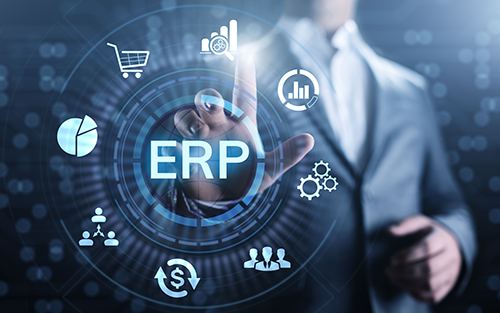- By Emmanuelle Hose
- April 02, 2024
- Feature
Summary
The drive toward smart factories—marked by the integration of cutting-edge technologies and digital processes—is not just a trend but a strategic imperative.

In today’s hyper-competitive manufacturing industry, the drive toward smart factories—marked by the integration of cutting-edge technologies and digital processes—is not just a trend but a strategic imperative.
Smart factories promise streamlined processes and production, plus benefits to development, logistics, supply chains and planning, all of which depend on Enterprise Resource Planning (ERP).
ERP systems are integral to manufacturing operations and play a mission-critical role in optimizing processes, maximizing productivity and enabling informed decision-making. But on the journey to smart factories, a significant hurdle obstructs forward progress: the challenge of pressured ERP system migrations, exemplified by SAP's S/4HANA transitions.
Manufacturers are increasingly at a crossroads, pressured by software giants to undertake costly and disruptive migrations to cloud-based systems. These migrations are not mere upgrades but foundational shifts that can jeopardize years of customization and integration—elements vital to the operational DNA of manufacturing enterprises.
The pain of “rip and replace”
SAP is pushing its RISE with SAP program, a carrot-and-stick migration campaign to entice ECC customers (and those who have already migrated to on-premises S/4HANA) to cloud-based S/4HANA running on SAP-managed hyperscaler infrastructures. This strategy of pushing customers to subscription-based pricing locks in recurring revenue and can give the vendor more control over version upgrades. However, it doesn’t necessarily make sense for customers who know from experience that "rip and replace" migrations are sometimes large, complex, and risky projects that can cost millions of pounds, take longer than expected and break existing processes along the way.
In the face of these challenges, IT leaders throughout the manufacturing industry are exploring alternative paths. The pursuit of modernization and the benefits of smart factory capabilities do not necessarily require adherence to a vendor-dictated roadmap. Instead, manufacturing leaders are increasingly questioning the strategic value of pressured upgrades and looking toward solutions that offer greater flexibility, control and cost efficiency.
A shift in mindset: From pressured migration to strategic innovation
The key to navigating this landscape is a strategic shift in mindset. Manufacturers must recognize that while ERP systems are mission-critical, the way forward does not lie in disruptive migrations. Alternative strategies, such as leveraging third-party support for existing ERP systems, offer a viable path.
Such approaches allow manufacturers to maintain and extend the value of their current systems while freeing up resources to invest in truly transformative technologies like AI, IoT and 5G—technologies that are the true drivers of competitive advantage in the era of Industry 4.0.
Embracing smart decisions for a smart factory future
The journey toward a smart factory is not linear and should not be dictated by external pressures to conform to a standard digital transformation model. By taking a critical stance on the necessity and timing of ERP migrations and exploring alternative support models, manufacturers can navigate their unique path to innovation and success. This approach can help to mitigate financial and operational risks associated with pressured migrations while aligning ERP strategy with broader business goals of agility, innovation and competitive differentiation.
About The Author
 Emmanuelle Hose has more than 25 years of proven experience in the IT industry, leading enterprise software sales, service, and development operations across 3 continents: Europe, North America and Oceania. After serving in several executive roles with global software companies, Emmanuelle was recently leading Rimini Street business operations across Australia and New Zealand, delivering exceptional service to our clients, accelerating sales growth and extending the leadership position of Rimini Street in the software support market across the region. She holds a Bachelor of Science (2/1) Hons (Upper Division) in Information Technologies from the University of Brighton (United Kingdom).
Emmanuelle Hose has more than 25 years of proven experience in the IT industry, leading enterprise software sales, service, and development operations across 3 continents: Europe, North America and Oceania. After serving in several executive roles with global software companies, Emmanuelle was recently leading Rimini Street business operations across Australia and New Zealand, delivering exceptional service to our clients, accelerating sales growth and extending the leadership position of Rimini Street in the software support market across the region. She holds a Bachelor of Science (2/1) Hons (Upper Division) in Information Technologies from the University of Brighton (United Kingdom).
Did you enjoy this great article?
Check out our free e-newsletters to read more great articles..
Subscribe

